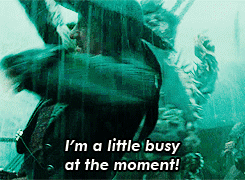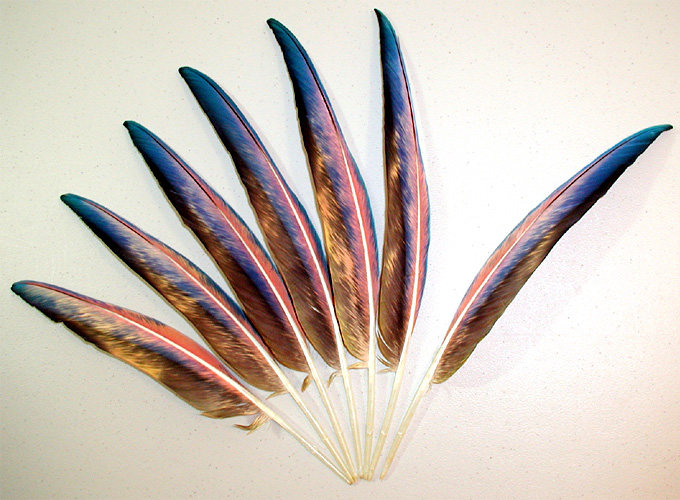I've declared this week, while I wait on The Writer's Voice to happen, The Week of Whys. You'll see . . . why . . . as we go.
Don't let the title of our first post fool you-- I love my job. LOVE. L.O.V.E. it.
But there are a lot of things about my job that people don't always understand or expect, and if you or anyone you know is considering a job in this field, I suggest you point them this way.
Zookeeping, and animal care in general, is a highly desirable field to work in. It seems obvious why, especially if you love animals. After all, zookeepers must do nothing but the fun stuff, right? They must just spend all day hugging penguins (scarier than it sounds) and riding lions (not a thing), right?
Er. Well. Not right.
Here's why being a zookeeper is a tough, tough job.
Animals get hurt, sick, old, and eventually, they die. There's simply no way around this truth. Even working with some of the best exotic animal vets in the world (which I do; I would trust our vets with my life and the lives of my pets, who are akin to my children), sometimes there's just nothing you can do. Zoo animals live on average up to 40% longer than their wild counterparts, but at some point even the most long-lived animal will simply succumb to time. We do everything we can, but it's not always enough. Accidents happen. Diseases happen. Fate happens.
This, is the hardest part. Rest assured, as sad as you may be to hear an animal at your local zoo has died, the staff that worked there, poured their sweat and blood and energy and love into that animal, are sadder.
It sucks, to work with an animal for years, sometimes since birth, and watch them grow old and die. We carry these hurts with us in tiny little pockets in our heart. No matter how long ago, we will always remember.
If you want to work in a zoo, be prepared.
Animals are hard to take care of. Well, this seems obvious, but it's not always. There really is no "easy" zoo animal. Some are easier than others, sure, but to give the animals the level of care our standards call for requires a lot more work than you'd think. I work with a lot of terrarium type enclosures that seem easy because they're small. But they all get completely stripped out, washed down, and replaced every day or every other day. Before, when I worked with penguins, we would completely melt the ice in a half to a third of the exhibit and blow in fresh snow every morning.
If you want to work with ocean animals, it's a bit easier as hoses and filtration tend to do a lot of the work for you. But there's still hundreds of pounds of fish to thaw, bucket, carry, and feed out.
There's so much diversity in land animals that pretty much every species requires different care. Every species gets its own daily menu at my zoo, and part of my job is "cooking" for all of them. Imagine working in a restaurant where the menu is different for each customer that walks in.
Frogs require wearing special gloves to prevent us contaminating them with a deadly fungus. Elephants can drop about 150 lbs of manure each, PER DAY. Some animals eat a thin slurry that gets everywhere and dries to the consistency of cement and has to be scrubbed off each and every morning. Antelope poo comes out in little balls that range from sunflower seed size to chocolate covered cashew size, and we have to rake it all up. Bales of hay weigh over a 100 pounds, and yes, we do have to move them on our own. We cut thick branches off of trees we farm for the purpose of feeding. We clean dishes, we sweep floors, we dust, we mop, we empty the trash. We have to work in weather that reaches below freezing and over 100 degrees, in the full sun, in the rain, on holidays, on weekends, early in the morning and late, late at night. Some animals can kill you. Some animals can make you very sick. Some animals can cripple you for life.
We never have soft hands.
When people ask about our jobs, we want to share, but sometimes, it's just overwhelming knowing where to start, what to say.
There isn't a lot of time for snuggles. What most people don't realize about zookeeping is that we spend so much of our day just taking care of the animals that we don't have much time left over for what we all got into the field to do: spend time with the animals. But, in a lot of ways, this is a good thing. My zoo concentrates on breeding, and animals behave more naturally without humans interfering all the time and influencing their behavior. They get the attention from us that they need, but this isn't the job for you if all you want to do is bond and play with animals.
You will still have to deal with people. A lot of people start out wanting to get into this field because they aren't "people" people. But, uh, bad news. You actually HAVE to be a people person to work in this field because a.) you will always work with the public in some capacity, and b.) you will still have to work with your co-workers. It will never just be you and the animals.
It's not an easy job to get. In fact, it's getting harder and harder to get into this field. There are plenty of sources out there for how to get into it, but the more research you do, the better off you'll be. More and more often, you have to be a jack of all trades to work here. Expand your horizons and apply, apply, apply. My own two cents? It's 90% about your attitude (after your qualifications). Be confident, but nothing is below you. If you don't believe me, see paragraph above again about spending most of our day cleaning up poo.
So. Still want to be a zookeeper? Good. If you've read this far and it still sounds awesome, then you're probably one of the right people for the job.
It IS rewarding. More on that later this week :)
Edit: check out my companion post here:
Why being a zookeeper is pretty freaking awesome.
Interested in pursuing a career as a zookeeper? See
my ultimate guide here.
























